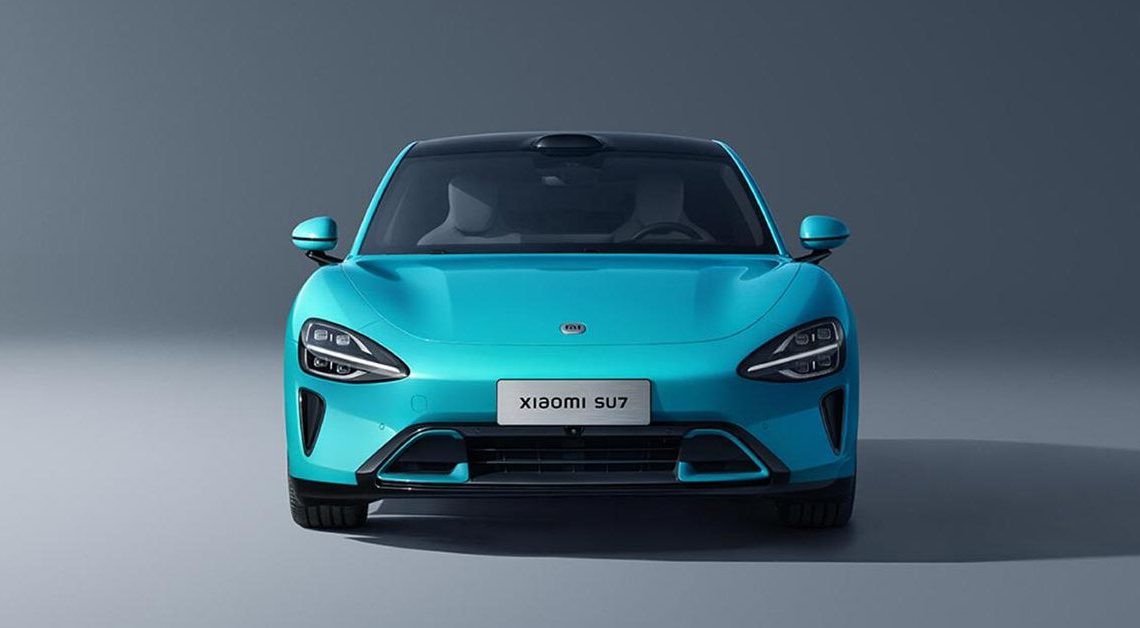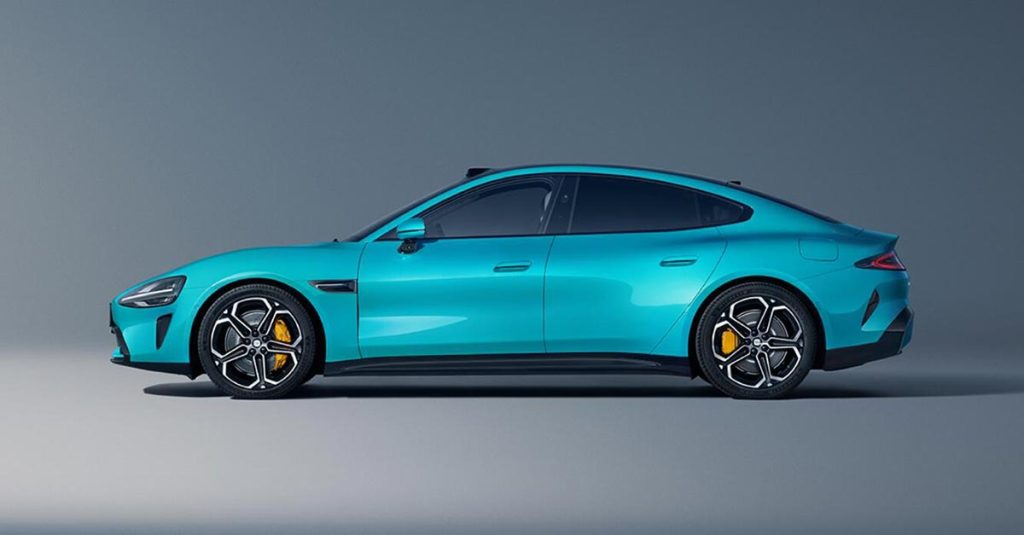
Chinese smartphone giant Xiaomi officially unveiled its first electric car yesterday at a launch event in Beijing, while declaring its big ambitions to rival Tesla and Porsche and become a top automaker within the next two decades.
The SU7, which we’ve previously covered, signals the transition of the Chinese electronics giant to brave new ventures, and its billionaire cofounder Lei Jun is setting his sights high. He vows to become a global automobile leader within 15 to 20 years and to build a “dream car” that can contend with Tesla and Porsche, according to Reuters. He added that the company plans to invest $10 billion to shake up the industry as it did for smartphones 10 years ago.
Speaking to a packed house in Beijing yesterday, Lei didn’t offer up an exact launch date or price but shared details on new features, including range and power. He added that the SU7 will outperform premium EVs from Tesla or Porsche thanks to its advanced motor, autonomous driving, and battery management systems, Forbes writes.
Earlier this week, Lei wrote on the company’s Weibo account that the SU7 might look “a little bit expensive,” according to Forbes. The SU7 is positioned to compete with Porsche’s Taycan Turbo (it even looks like the Taycan) in terms of performance, he added, noting that too it will come with intelligent driving features like those you find in Tesla’s Model S.
The new SU7, an acronym for Speed Ultra, will come equipped with software and electronics from Xiaomi and a 101 kWH battery with CATL cells that provide a maximum range of 800 km (about 500 miles). The vehicle will be available in a single or dual motor configuration, with the top-spec AWD version packing 475 kW of power for 0-100 km/h (62 mph) acceleration in 2.78 seconds and a top speed of 265 km/h (165 mph). Batteries for the SU7 will be supplied by China’s own BYD, one of the world’s largest EV producers, and CATL.

Xiaomi, which was once blacklisted in the US by Trump for its alleged ties to China’s military, is the world’s fourth-largest smartphone maker and also produces a slew of electronics in addition to e-bikes and scooters.
Since first announcing the company’s plan to venture into EVs in 2021, the regulatory landscape in China, which is the world’s largest car market, has significantly changed. According to The Business Times, the government has clamped down on manufacturing permits to new players, which means Xiaomi has to partner with state-owned Beijing Automotive Holding Group to build its EVs. And, of course, competition is fierce, with the SU7 set to launch into a market already flooded with hundreds of new models from dozens of brands.
Plus it will have to contend with Chinese auto powerhouse BYD, which is set to overtake Tesla as the new world leader in fully electric vehicle sales, reports Bloomberg. In China alone, it sold more than 300,000 cars in November, compared to 80,000 from Tesla.
Author: Jennifer Mossalgue
Source: Electrek



